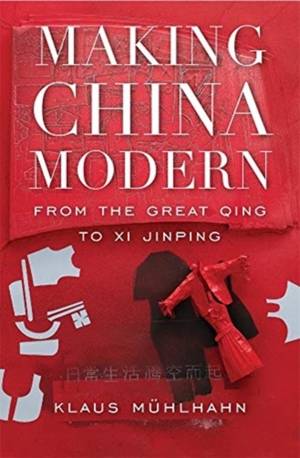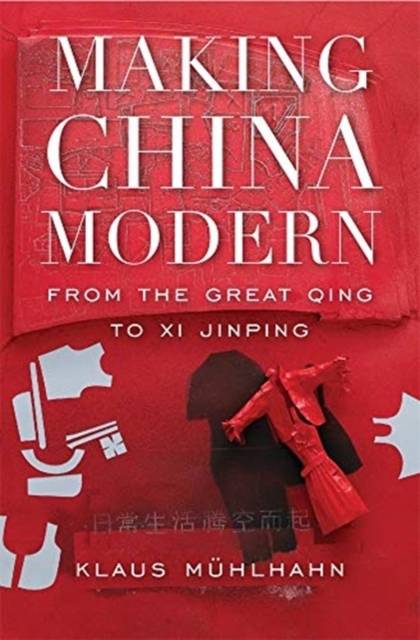
- Afhalen na 1 uur in een winkel met voorraad
- Gratis thuislevering in België vanaf € 30
- Ruim aanbod met 7 miljoen producten
- Afhalen na 1 uur in een winkel met voorraad
- Gratis thuislevering in België vanaf € 30
- Ruim aanbod met 7 miljoen producten
Zoeken
€ 32,45
+ 64 punten
Uitvoering
Omschrijving
"Thoughtful, probing...a worthy successor to the famous histories of Fairbank and Spence [that] will be read by all students and scholars of modern China."
--William C. Kirby, coauthor of Can China Lead?
--New Yorker "A remarkable accomplishment. Unlike an earlier generation of scholarship, Making China Modern does not treat China's contemporary transformation as a postscript. It accepts China as a major and active player in the world, places China at the center of an interconnected and global network of engagement, links domestic politics to international dynamics, and seeks to approach China on its own terms."
--Wen-hsin Yeh, author of Shanghai Splendor
Specificaties
Betrokkenen
- Auteur(s):
- Uitgeverij:
Inhoud
- Aantal bladzijden:
- 736
- Taal:
- Engels
Eigenschappen
- Productcode (EAN):
- 9780674248311
- Verschijningsdatum:
- 17/11/2020
- Uitvoering:
- Paperback
- Formaat:
- Trade paperback (VS)
- Afmetingen:
- 155 mm x 234 mm
- Gewicht:
- 879 g

Alleen bij Standaard Boekhandel
+ 64 punten op je klantenkaart van Standaard Boekhandel
Beoordelingen
We publiceren alleen reviews die voldoen aan de voorwaarden voor reviews. Bekijk onze voorwaarden voor reviews.











